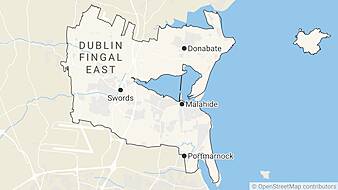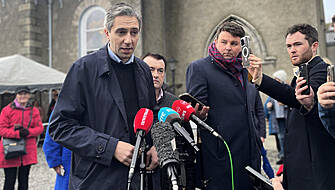An environmental group has received High Court permission to judicially review the Government’s decision to adopt its 10-year agri-food sector strategy.
Friends of the Irish Environment (FIE) is seeking to quash the decision to adopt, publish or approve last year the “Food Vision 2030” strategy.
The Food Vision 2030 report, published last August, set out a roadmap for exports to rise from €14 billion to €21 billion by 2030, while it also envisaged Ireland would become a “world leader in sustainable food systems” over the period.
The agriculture and marine sector plans were developed by a cross-sectoral committee of 30 agri-food stakeholders.
Mr Justice Charles Meenan gave FIE permission on Tuesday to pursue its challenge against the adoption of the strategy. Leave was granted on notice to the State respondents, who did not object to the application of John Kenny BL, instructed by FP Logue Solicitors.
FIE claims the plan was not subjected to an adequate environmental impact assessment of the likely effects of its implementation. Further, its adoption does not comply with requirements under the European Union’s Strategic Environmental Assessment (SEA) Directive which have been transposed for this jurisdiction by the European Communities Regulations 2004, it alleges.
'Reasonable alternative'
In documents before the court, the group claims no adequate reasons were given for choosing this strategy over another “reasonable alternative” which allegedly outperformed it against a greater number of specified environmental objectives.
FIE contends an article of the 2004 regulations assumes that all “reasonable alternatives” to the chosen plan will be subjected to an equal level of assessment.
However, the group claims it is impossible to understand the weighting priorities of an assessment used to score the alternatives against each of the environmental objectives. The selection of this plan, says FIE, was “irrational and unreasonable”, as it allegedly took account of irrelevant considerations and failed to consider other relevant materials.
The group says it anticipates the State respondents will argue that the adoption of Food Vision does not constitute Government policy and/or that environmental assessments were voluntary to the extent that any error is devoid of legal consequences.

It notes that a similar argument has been advanced by the State in another FIE action seeking to quash the adoption of Project Ireland 2040, which includes the National Development Plan. The Supreme Court last week agreed to consider FIE’s appeal in this case, which will include an examination of the status of the National Development Plan.
In its Food Vision challenge, FIE claims any such argument would be contrary to language used by the State respondents during the environmental assessments and ignore the “significant policy implications” that flow from these agri-food strategies.
As well as an order quelling the August 3rd-decision, FIE wants various court declarations, including that the State parties erred in law in failing to adequately consider reasonable alternatives to the chosen plan for the purposes of the SEA Directive and an article of the 2004 regulations.
The case, which is against the Government, Ireland, the Attorney General and the Minister for Agriculture, Food and the Marine, was adjourned for mention in June.







